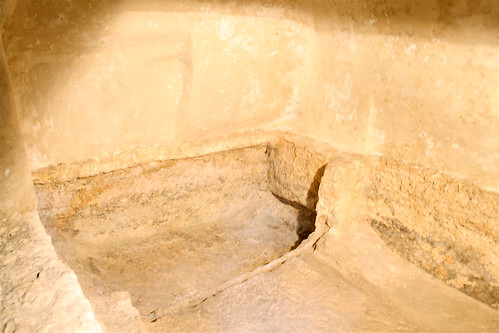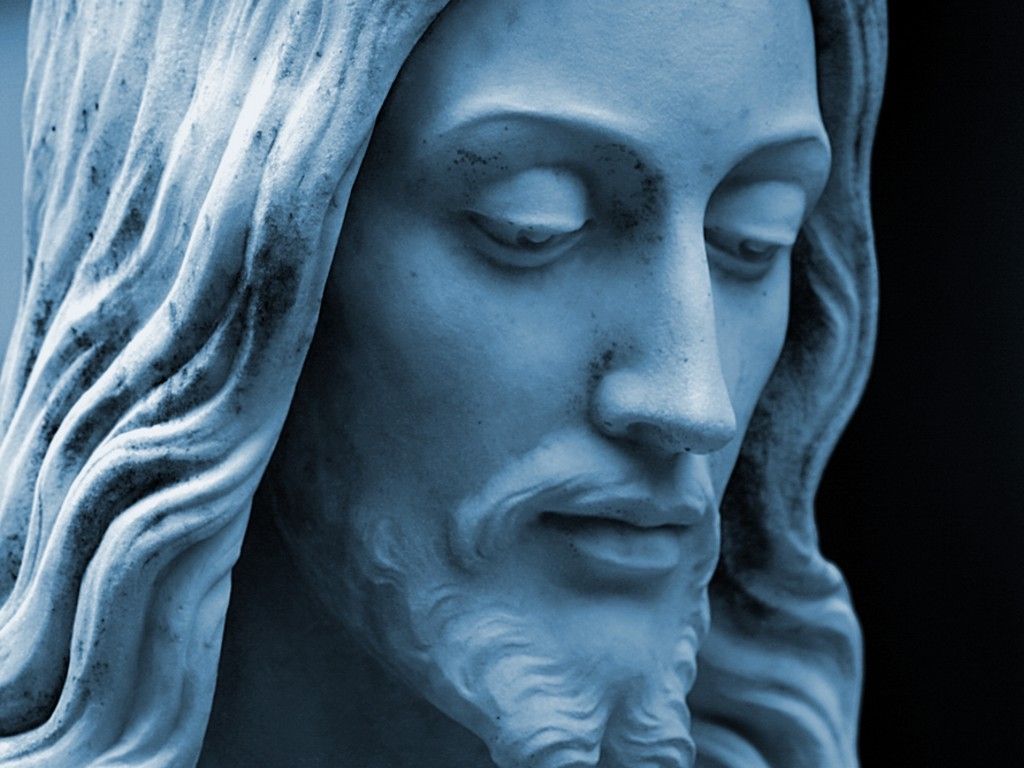In his autobiography
Surprised by Joy, C. S. Lewis wrote:
Early in 1926 [when Lewis was still an atheist] the hardest boiled of all the atheists I ever knew sat in my room on the other side of the fire and remarked that the evidence for the historicity of the Gospels was really surprisingly good. "Rum thing," he went on. "All that stuff of Frazer's about the Dying God. Rum thing. It almost looks as if it had really happened once."
What does it mean to say that there is historical evidence for the resurrection of Jesus? It means that historians agree on facts about Jesus that strongly point to His resurrection from the dead. It does not, however, mean that the majority of scholars conclude that Jesus was raised from the dead. They would be at least nominally Christian if they believed that. (And in spite of his off-hand comment, Lewis' friend never since showed any interest in Christianity.)
Over the years, critical scholars have not so much disputed the facts as sought naturalistic explanations, like the swoon theory, the stolen body theory, and the mass hallucination theory. But as we will see in the next post, none of these theories are medically or psychologically plausible, nor do they explain all the facts. Only the bodily resurrection of Jesus explains all the known facts.
These key facts are:
First, Jesus was buried in Jerusalem, in the tomb of Joseph of Arimathea, a prominent member of the Sanhedrin.
Second, the disciples lost hope when Jesus was arrested.
Third, the tomb was found empty by a group of Jesus's female followers on the morning of the third day after He was crucified.
Fourth, over a period of time a variety of people had experiences where Jesus appeared to them postmortem, including James, the skeptical brother of Jesus and Paul, the Pharisee who persecuted the church.
Fifth, the resurrection was the central message from the very beginning, and the disciples courageously preached it in Jerusalem, the city where Jesus was crucified, willing to forfeit even their lives.
Why do most historians agree on these facts?
The "honorable burial" by Joseph of Arimathea in Jerusalem. Most historians agree that the Gospel accounts are correct about the honorable burial for the following reasons: First, the burial is independently attested in several early sources. Skeptical scholar Bart Ehrman acknowledges that "the earliest accounts we have are unanimous in saying that Jesus was in fact buried by this fellow, Joseph of Arimathea, and so it's relatively reliable that that's what happened."
Second, Joseph was a member of the Sanhedrin, which means that he was a celebrity at the time. The authors of the Gospels could not have made this up and not been called on it because many people would have known, at the time when the Gospels were written, whether or not it was true. And the Jewish leaders certainly would have set everyone straight if this had been fabricated.
Third, it seems unlikely that the Christians would have made this up. The Jewish leaders are the villains in the Gospel accounts, and the early Christians blamed them for Jesus's death (Acts 7). So how likely is it that the Gospel authors would all agree to fabricate this ironic twist--that a good and honorable Jewish leader would bury Jesus in his own tomb?
The historicity of this fact is significant because it tells us that Jesus was buried in Jerusalem, in the very city where the message of the resurrection was initially proclaimed. So if any body remained in the tomb, the authorities could have produced it and the message would have been disproved immediately. But there is no evidence of any body having been produced. Gary Habermas says, "We certainly would expect to have heard from Celsus, the second-century critic of Christianity, if Jesus' corpse had been produced. When he wrote against Jesus' resurrection, it would have been to his advantage to include this damaging information, had it been available." But neither he nor any of the Christian apologists of the second or third centuries mentioned it.
The disciples' initial doubt and fear. One of the criteria Bible historians use to determine whether an event in the life of Jesus really took place is the criterion of embarrassment. That is, if it is embarrassing and still included, it is most likely true because why would someone fabricate something to make a significant person in the early church look bad? Well, Peter's denial of Jesus makes him look
really bad. First we have the initial bravado: "I'll never deny you, even if I have to die for you!" Then after Jesus was arrested, we have the cowardly denial to a
servant girl who recognized him. And when they didn't accept his denials, the future St. Peter the great church leader started cursing and swearing: "I do not know the man!"
This story clearly qualifies under the criterion of embarrassment, and it tells us that the budding ministry started to collapse when their Leader died. As Peter demonstrates, the disciples were stricken with fear and began to doubt everything they had seen and experienced. And this incident is told in all four Gospels so it also qualifies under the criterion of multiple attestation.
The discovery of the empty tomb by female disciples. Was the tomb really empty? This is probably the most controversial fact of the five, and even so, William Lane Craig says: "According to Jacob Kremer, a New Testament critic who has specialized in the study of the resurrection: 'By far most exegetes hold firmly to the reliability of the biblical statements about the empty tomb.' In fact in a bibliographical survey of over 2,200 publications on the resurrection in English, French, and German since 1975, Habermas found that 75 percent of scholars accepted the historicity of the discovery of Jesus' empty tomb. The evidence is so compelling that even a number of Jewish scholars, such as Pinchas Lapide and Geza Vermes, have declared themselves convinced on the basis of the evidence that Jesus' tomb was found empty." And Bart Ehrman admits, "We also have solid traditions to indicate that women found this tomb empty three days later."
The main reason why most scholars accept the historicity of the empty tomb is because each Gospel account insists that women were the chief witnesses. It is not strictly true that they were not permitted to testify, but they were never called upon as witnesses in important matters. So if the story of the empty tomb was legendary, the
male disciples would have almost certainly have been the ones to discover it. There is simply no reason to fabricate such a detail.
Some critical scholars, like Gerd Lüdemann, believe that the account of the empty tomb is a legend, but the canonical passion story is too unembellished to read like a legend. Contrast the understated passion story of the Gospel of Mark to the dramatic non-canonical Gospel of Peter, where a gigantic Jesus emerges from the tomb before a vast crowd of witnesses, including the villainous Roman soldiers and Jewish leaders. Two enormous shining men carry Jesus off in glory as a talking cross follows them. A voice from heaven proclaims: "Thou hast preached to them that sleep, and from the cross there was heard the answer, Yea" (10:41-42). Now that's a legend for you!
A variety of people had experiences, at different times and in different ways, in which Jesus appeared to them postmortem. Scholars are virtually unanimous in their acceptance of this fact. Gerd Lüdemann, an eminent atheistic scholar who has written a
book seeking to prove that the resurrection
did not take place, has said, "It may be taken as historically certain that Peter and the disciples had experiences after Jesus's death in which Jesus appeared to them as the risen Christ." As I will discuss in the next post, Lüdemann contends that everybody who thought they saw him actually hallucinated. However, for now it is significant that just about all scholars accept this fact, including those who are strongly biased against Christianity.
Why would an opponent of Christianity say that this is historically certain? In the first letter to the Corinthians, written by Paul around 55AD, he says: "For I delivered to you as of first importance what I also received, that Christ died for our sins according to the Scriptures, and that He was buried, and that He was raised on the third day according to the Scriptures, and that He appeared to Cephas [Peter], then to the twelve. After that He appeared to more than five hundred brethren at one time, most of whom remain until now, but some have fallen asleep; then He appeared to James, then to all the apostles; and last of all, as to one untimely born, He appeared to me also" (1 Corinthians 15:3-8).
So at the time when Paul wrote this, there were hundreds of people still alive claiming to have seen the risen Christ and willing to testify as witnesses. Were they all friendly witnesses? No, James the brother of Jesus was a skeptic until He saw Jesus postmortem, and that is when he was converted and became one of the leaders of early church. And, according to Josephus, James and some companions were stoned to death by the Sanhedrin of judges in 62 BC (
Antiquities of the Jews 20:200).
Paul himself was certainly no friendly witness. Until his conversion on the road to Damascus, Paul was a Pharisee who violently persecuted the church, having been commissioned by the Sanhedrin. "For you have heard of my former manner of life in Judaism, how I used to persecute the church of God beyond measure and tried to destroy it; and I was advancing in Judaism beyond many of my contemporaries among my countrymen, being more extremely zealous for my ancestral traditions" (Galatians 1:13-14).
So Paul was well-respected among the very people who sought to destroy the Christian movement, but he gave that all up after Jesus appeared to him. Instead of prestige and money, he chose ridicule, imprisonment, and poverty for the sake of the Gospel. Why did he do that? If he had really seen Jesus, he did it for the hope of his own resurrection and the resurrection of others. But if the incident on the road to Damascus never happened, what then could possibly have motivated him?
The resurrection of Christ was the central message of Christianity from the very beginning, and the disciples courageously preached it in Jerusalem, the city where Jesus was crucified. In 1 Corinthians 15:3-4, Paul sets forth the creed that he received, "that Christ died for our sins according to the Scriptures, and that He was buried, and that He was raised on the third day according to the Scriptures." This is an early creedal formula that most critical scholars believe Paul received in 35 AD, during his visit to see Peter and James in Jerusalem three years after his conversion (Galatians 1:18). So within five years of the resurrection, the beliefs of the early church had been formulated into a creed and passed on to Paul. German historian Hans von Campenhausen says of the dating of the creedal formula: "This account meets all the demands of historical reliability that could possibly be made of such a text." However, this does not mean that the creed was formulated as late as 35 AD; it simply means that it already existed at that time.
It is well established that the early church flourished in Jerusalem, the city where Jesus was crucified and buried. If the tomb had not been empty and the Sanhedrin had produced a body--any body--it would have significantly weakened the movement if not disproved the claim that Jesus had been raised from the dead. But the early Christians boldly proclaimed the resurrection in Jerusalem, willingly facing torture and death for their conviction.
Those historical facts have stood immutable as a rock in spite of many attempts to explain them away. Did Jesus not really die? Did the disciples steal the body and conspire to deceive? Did everybody who thought they saw the resurrected Christ hallucinate? Were people in first century Palestine so superstitious and ignorant of science that they readily believed that someone could be raised bodily from the dead?
The last point was raised in the comments to the prior post, so I'll reply to that here. In
The Resurrection of the Son of God, N. T. Wright said that the idea of a bodily resurrection was considered impossible among the pagans. They might not have been very scientific (and they may have believed in ghosts), but they knew that dead people stayed dead. Wright says: "Not even in myth was it permitted. When Apollo tried to raise a child from the dead, Zeus punished them both with a thunderbolt." In 1 Corinthians 1:23, Paul says that the Gospel is foolishness to the Gentiles, and that is probably because they had no belief in the possibility of a bodily resurrection of the dead. In Acts 26:24, the Roman governor Festus accuses Paul of being out of his mind when he tells King Agrippa about the resurrection. The Jews, on the other hand, believed only in a resurrection at the end of time, and they had no concept of a dying and rising Messiah.
The skeptic who rejects the resurrection will have to propose an alternative explanation for the evidence, and I will elaborate on some of them in the next post. Lüdemann has argued that those who believed they saw Jesus really hallucinated, a problematic hypothesis given the nature of hallucinations. Bart Ehrman relies on David Hume's argument that the supernatural is inherently the least probable explanation, but that argument has been refuted using Bayes' Theorem. And Anthony Flew admitted, in a debate with Gary Habermas in 1993, that he had an almost invincible unbelief in the resurrection because it seemed to him so "wildly inconsistent with everything else that happens in the universe."
Flew is right that the resurrection is wildly inconsistent with everything we know; people have always known that dead people stay dead. But that is precisely why it would be logical for the Creator of this ordered universe to reveal Himself to us in that way, as a miracle within His original miracle--creation itself.












